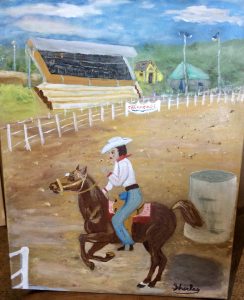
Thousands of free people gathered in front of the country of Georgia’s parliament in the capitol city of Tbilisi this past week to protest two new general laws the ruling political power, The Dream Party, wanted to impose on Georgia’s citizens. Although it has been denied by Russia, both bills were inspired by Russia’s draconian statutes that suppress dissent and oppress would-be dissenters in Russia. The Russian Duma and President Putin have managed to enact a series of laws that would make Joseph Goebbels envious and George Orwell prophetic.
Georgia’s reactionary, pro-Russian, anti-Western ruling party thought to run roughshod over freedom of speech, freedom of the press and freedom of the Georgian citizens to peacefully assemble and ask their government to address their grievances. In the case of these two new laws, the attempt by The Dream Party was to prevent foreign support for Georgian democracy and to punish by fines of up to 25,000 Georgian lari ($9,600 U.S. dollars) or even up to 5 years imprisonment, anyone who accepted foreign support of over 20% of their budget for pro-Western/anti-Russian activities and thoughts. These two statutes would have designated such support as coming from “foreign agents”, say America for example. In fact, since Peg and I were paid and dispatched to Georgia by the American Bar Association, the United States Agency for International Development and the East-West Management Institute, those two Alice in Wonderland epistemological abominations might well have resulted in our appearance in the very courts we were sent to help.
Most of Georgia’s northern border is bounded by Russia. In 2008 Russia simply drove its army into Georgia without need for much military activity and took over 20% of Georgia’s sovereign territory that it still occupies. Russia exerts great influence over much of Georgia, but a majority of Georgians see themselves as being entitled to a free and democratic country that looks to Europe and the West for its future. Russia and Georgia’s governmental majority Dream Party demur from this position.
When Peg and I were sent to Georgia beginning in June 2022 and permanently leaving 25 February 2023, we were instructed to work with several of Georgia’s judges, court staffs, attorneys, law students and university pupils with the main goal of helping to enhance judicial independence and citizen access to the justice system. We were impressed with the desire of the Georgian people for freedom and democracy and especially the goodwill we experienced as representative Americans. We made many wonderful friends and greatly enjoyed the people.
In general, Georgians like and respect America and most of them are oriented toward the West and evince western values of justice and democracy. Peg and I were reminded of our halcyon days on our college campuses and our own protests against the Viet Nam War and for the Women’s Movement and the anti-discrimination movement to help Black people. I already had my honorable discharge when I returned to campus and Peg was not subject to the draft. However, we both engaged in First Amendment activities without regard to other possible repercussions, such as cutting class.
Much of my motivation came from growing up during days of Black/white segregation and losing one of my childhood friends to combat in Viet Nam. Peg was and is, of course, a member of that class of persons most affected by gender discrimination. Those are some of the reasons we respect what the people of Georgia are standing up for. They have much to lose personally but they do not want to lose their beautiful country. Therefore, they are making the hard sacrifices and standing up for their own rights and those of all their fellow citizens. And as President Theodore Roosevelt said, “The Glory Belongs to the Ones in the Arena.” We say to our Georgian patriots, if it were easy, it would not mean much. But, since there is much to dare, we say, as did World War II General “Vinegar” Joe Stillwell, in faux Latin, “Illegitimi non carborundum!” Be bold, it’s worth it!



